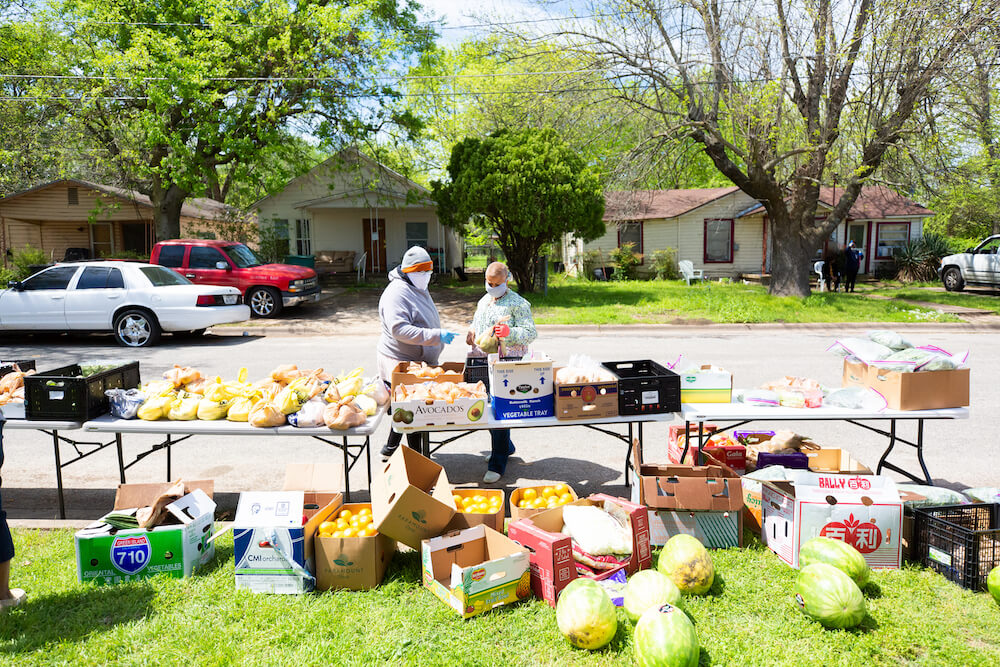By: Azza Altiraifi, Senior Program Manager at the Groundwork Collaborative
In the year since the COVID-19 pandemic first gripped the United States, over 525,000 people have perished and millions more - disproportionately people of color, disabled people, women, and those at the intersection of these identities—are still struggling to get by. The historic scale of the economic and public health crises we’ve faced was not inevitable. It was the result of decades of austerity policies and systematic disinvestment in the public sector at local, state, and federal levels. We cannot afford to repeat the mistakes of the past.
Over a decade of research shows that the economics of austerity are flawed, broadly unpopular, and racist. And while accelerating vaccine distribution and imminent federal fiscal aid are promising, it will take robust, sustained, and equitable public investment at state and local levels to get out of these crises and build a resilient economy that works for everyone, instead of the wealthy few.
Austerity is Racist and Economically Destabilizing
Even before the coronavirus emerged in the US, state and local budgets and tax systems were in bad shape. In the aftermath of the Great Recession, the federal government cut aid short prematurely, leading many state and local governments to pursue austerity measures to address budget shortfalls and mitigate the economic shock. States and localities eliminated public jobs, deferred necessary maintenance on critical infrastructure like roads and bridges, and shrunk social programs and services.

Not only did limited federal stimulus prolong the recovery from the Great Recession, but it exacerbated race and gender inequities. Consider that while the Great Recession technically ended in June 2009, it took until 2018 for Black women’s employment to fully recover. Now, with the economy plunged into crisis again, the very austerity measures implemented in the past have left states more economically vulnerable and exacerbated the financial harms faced by low-income workers and people of color.
Since February 2020, states and localities have lost 1.3 million jobs. But safety-net programs such as the unemployment insurance system struggled to scale up and distribute life-sustaining benefits in the face of such precipitous job loss and economic upheaval. This is largely because federal austerity over the past decades has shifted more responsibilities to state and local governments. Further still, austerity politics at all levels of government fuel scarcity myths and racist ideas of “deservedness,” which are then used to justify shrinking benefits and imposing cumbersome administrative barriers throughout the benefits application process.
Not only do cuts to benefits programs serving low-income people disproportionately impact Black and brown workers, they reduce state economic activity overall. Lower-income people tend to put every dollar they receive in benefits back into their state and local economy, so when programs that serve low-income households are slashed, state economies correspondingly contract.
The cumulative effects of these austerity measures and mindsets are seen in the millions of workers and families who waited months in a pandemic to access aid that was insufficient to meet their needs. And since Black and brown people are most likely to work in the hardest-hit sectors, they face the brunt of these cascading economic harms.
People-Centered Spending Will Help End This Crisis
As states face plummeting revenues and soaring investment needs due to the COVID-19 pandemic, the case for implementing progressive tax systems to raise revenue is incontrovertible. The majority of pandemic job losses are concentrated among low-income workers, but largely white upper-income households continue to see their assets grow during the pandemic. If states had more progressive tax systems, they could tax those income gains at the top to shore up revenue, reverse concentrations of wealth and power, and promote greater racial and gender equity.

Instead, many state budgets are more vulnerable, income inequality is worsened, and consequently, Black and brown workers are bearing an even heavier economic burden. On average, state tax systems take a 50% greater share of income from the poorest quintile of taxpayers than they take from the top one percent. Replacing these upside-down tax structures with progressive taxes on the highest earners can shore up budgets and create space for legislators to make meaningful investments in infrastructure, public health, green jobs, and more. And years of research have proven that in a depressed economy, increased public investment more than pays for itself in economic growth — more than $1 in growth for each $1 spent.
Recently, New Jersey passed a millionaires tax, which is a crucial step in addressing enduring racial and socioeconomic inequities within the state’s tax code. Heeding the call of advocates and economists, New Jersey’s state leadership rejected harmful and counterproductive budget cuts that would have exacerbated inequality and further eroded health and social infrastructure. Instead, they prioritized smart investments such as expanding the Earned Income Tax Credit (EITC) and restoring funding for an array of environmental programs.
States facing unprecedented spikes in spending due to COVID-19 and tumbling revenues can also pursue progressive taxes to balance their budgets and redistribute power and resources. And such investments are broadly popular. Polling confirms that the public opposes state budget and service cuts by wide and bipartisan margins.
Ultimately, an abundance approach to policy recognizes that people-centered spending—to restore and expand social services, revitalize key infrastructure, and build public power— is a matter of strategic investment to build a more just and equitable future. Robust public investment is broadly popular, economically sound, and necessary to advance racial justice. It’s time for state and local policies to reflect that.
Groundwork Collaborative is a research and policy advocacy organization working to advance a coherent and persuasive progressive economic worldview capable of delivering meaningful opportunity and prosperity for everyone.